Snowmobile-accessed Ski Touring in Idaho, Wyoming, and Montana
We spend a healthy portion of our winters seeking places to ski that are far removed from humanity. Sometimes we use pack horses, converted fishing boats, electric motorcycles, or even helicopters when we’re lucky. We treasure the solitude afforded when you go deep in the mountains—feeling small against a backdrop of rocky behemoths. That’s why we urge you to make your next great adventure snowmobile-accessed ski touring. With a few close friends and landscapes that stoke humility and self-reliance, it’s the Wild West like you’ve never experienced before.
Why you should try snowmobile-accessed ski touring
This winter, deciding to keep our travel domestic, we opted for snowmobiling. We already had the necessities—a midsize pickup, trailer, and two used sleds—but wanted to upgrade some of our gear and skills for more remote backcountry travel. In years past, we’ve used snowmobiles almost weekly to access the better ski terrain near home in central Oregon, but most of these places boast relatively flat, easy riding, and are well mapped out. We wanted to expand our horizons a bit, so we planned a three-week road trip to Idaho, Wyoming, and Montana.
While this article isn’t a perfect playbook, it’s intended as a helpful resource for backcountry skiers who want to use snowmobiling as a tool for greater access—and have some fun along the way. In planning for the trip, we researched a dozen locations, followed avalanche reports, spoke with locals, and spent countless hours testing new gear. Below are our biggest takeaways for snowmobile-accessed ski touring.
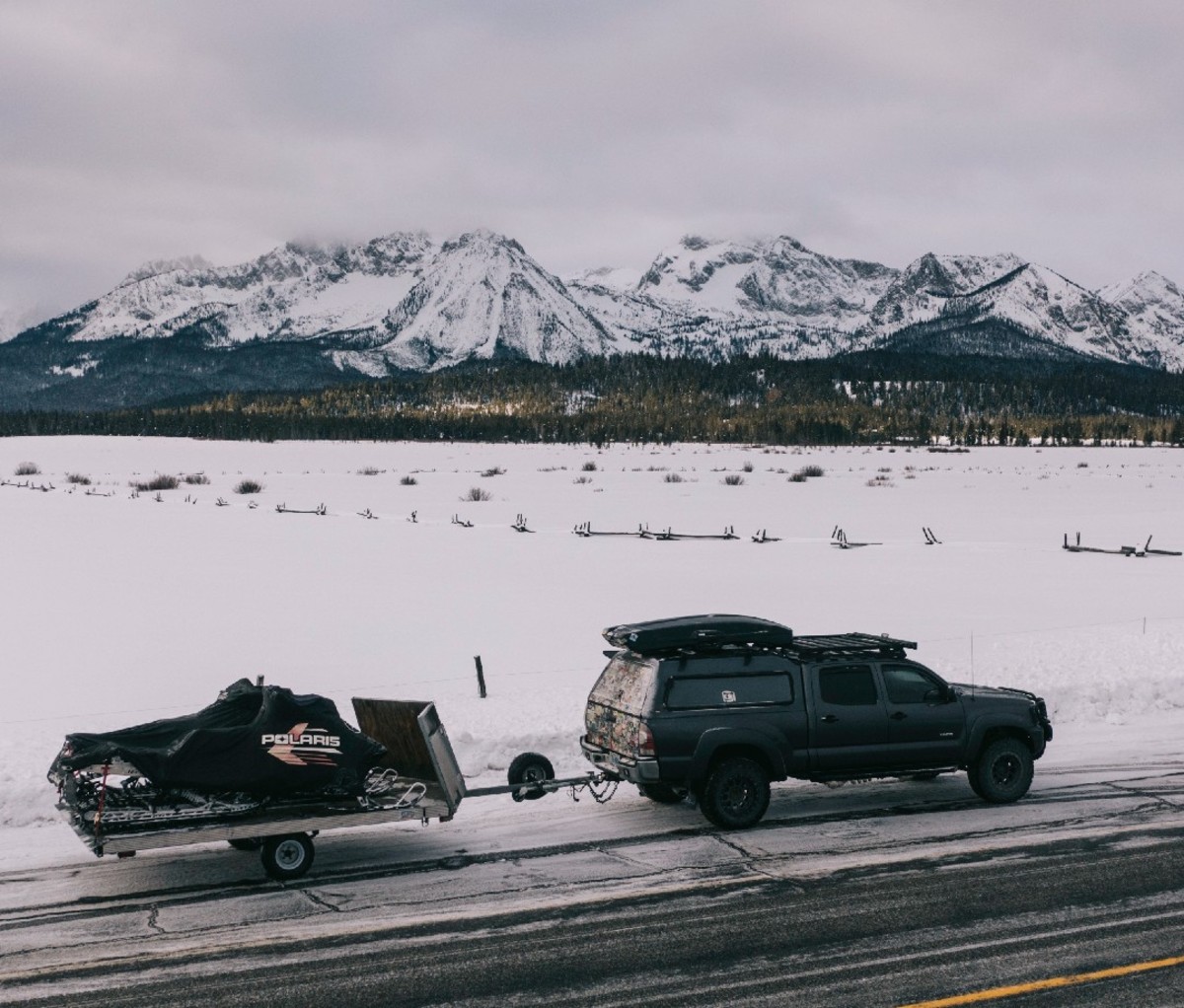
Where to go snowmobile-accessed ski touring
Many of the popular ski towns out west—Aspen, Telluride, Jackson, Park City, Truckee, and Bozeman, to name a few—have vast stretches of private land, protected wilderness areas, and very few sled access roads and routes. Despite being the shortlist of iconic ski destinations with world-class resorts, they surprisingly aren’t the best for sled-to-ski trips, like ours. So, we started a new list.
The places we visited were much farther off the beaten path. Our first destination was in Stanley, ID, on the edge of the Sawtooth Mountains. From there we traveled to Pinedale, WY, to visit the Wind Rivers, then to the sled mecca of Cooke City, MT, near the Beartooths. After, we drove north in Montana to Whitefish, just minutes from the Canadian border, before detouring to Halfway, OR, to visit an old stomping ground—the lesser-known Wallowa Range.
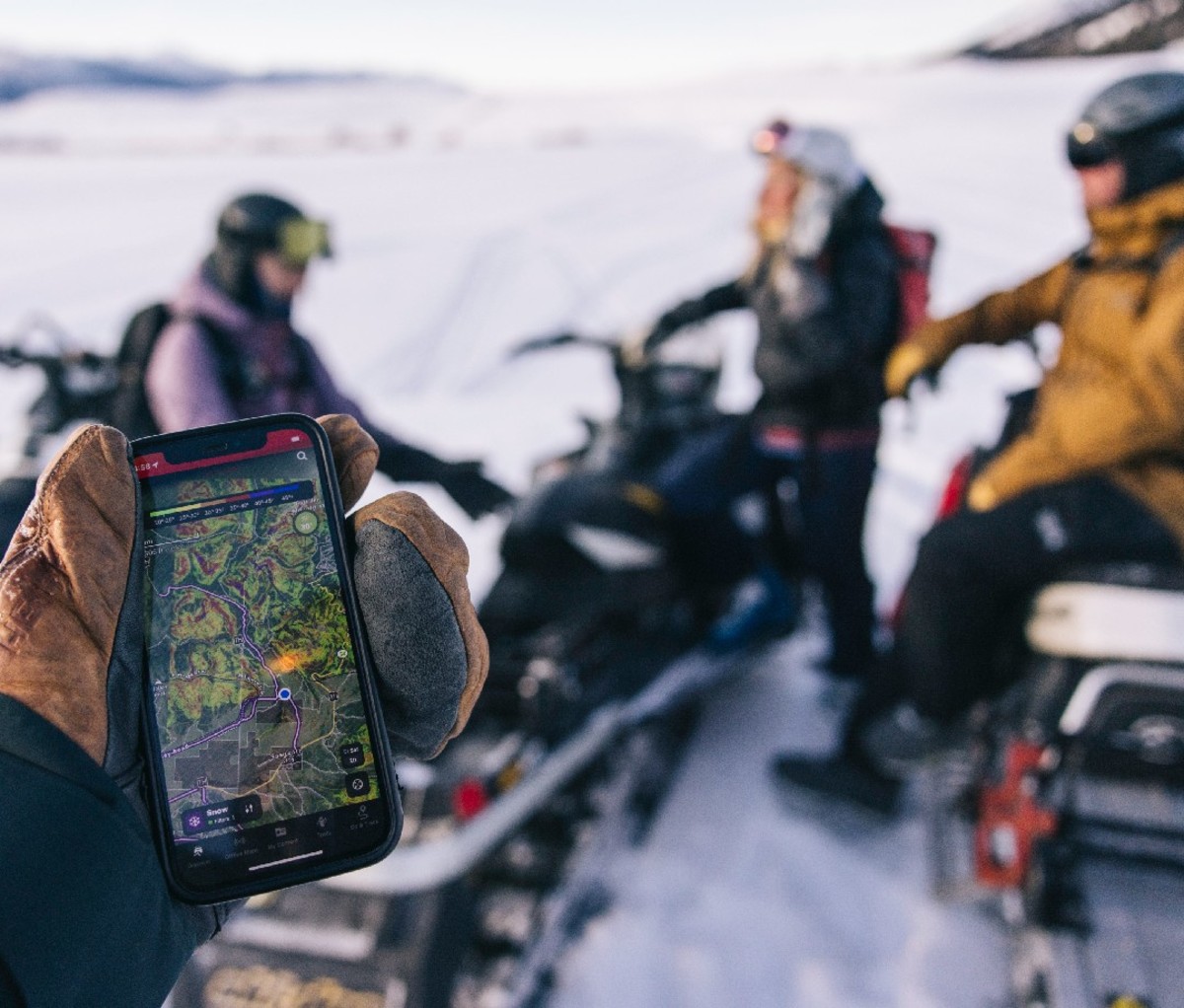
Upon reflection, there’s not much about our route we would change. Perhaps a little more time at each stop, if we could afford that time away from home. Each destination offered its own perks, from epic burned tree skiing in Idaho and pillows in Cooke to alpine lines in northern Montana.
When to go snowmobile-accessed ski touring
A big trip of this nature may appear to take months of planning, if not more. Between work, family obligations, birthdays, weddings, and holidays, PTO is at a premium for nearly all of us. Fortunately, a road trip offers an antidote: flexibility. Despite the copious time we spent researching the route, we left home with only half of our days planned in detail, leaving the rest to be decided by the weather gods.
Most of these places have good snow from mid-December all the way to April, so the window to road trip is fairly large. We opted for January, but most of that decision was circumstantial, related to other commitments we already had. For tiny-yet-popular towns like Cooke City and Stanley, we knew we needed to book ahead. For other stops, we gave ourselves the leniency to wait and watch the snow.
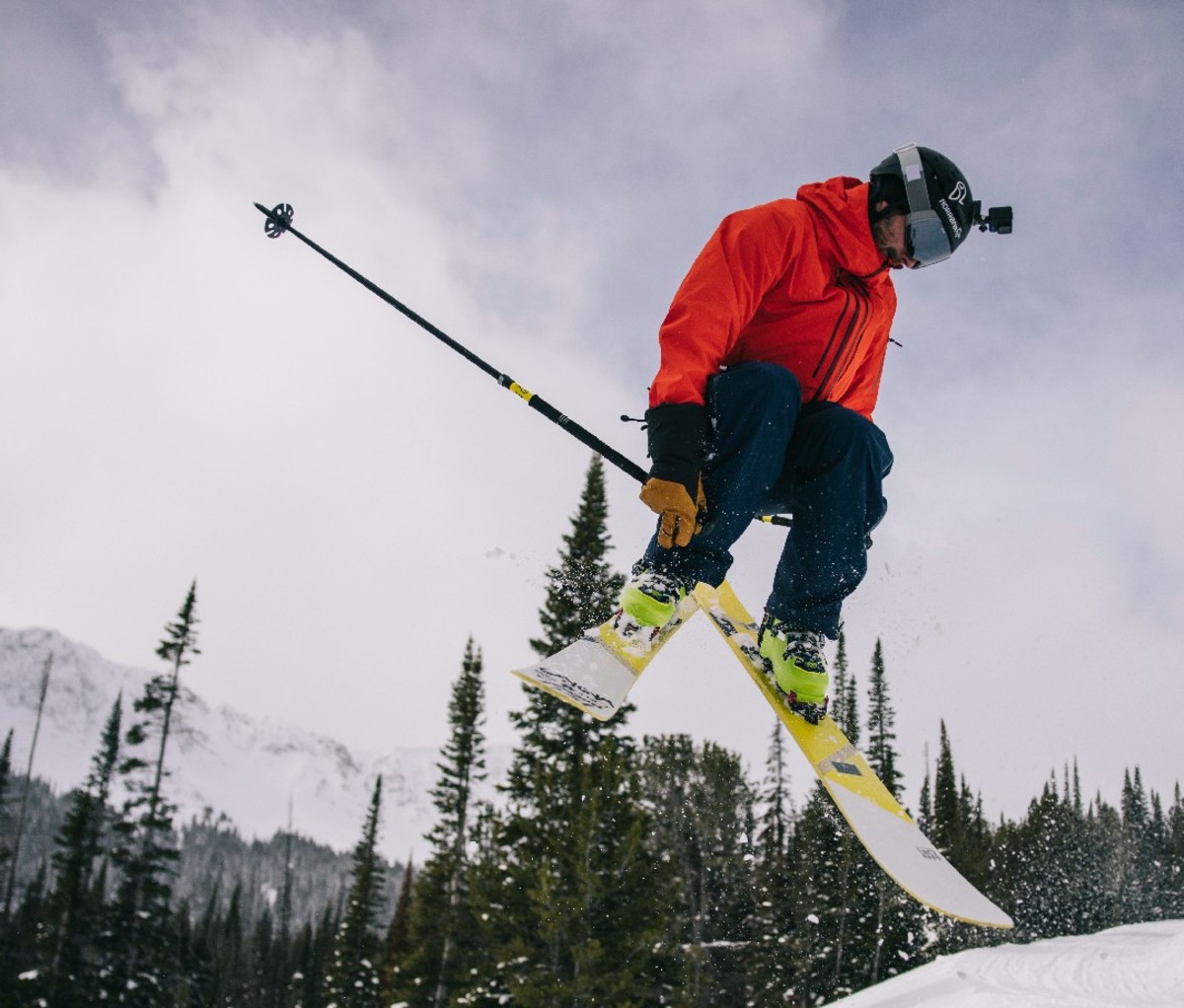
For example, only a few days before the trip we envisioned spending a week in British Columbia, but the snow was so good in Montana that we just stayed put. Every few days we’d make a loose plan for the next week, but hold off on booking places to stay until we were confident the skiing would be good. Ultimately, the weather forecast and avalanche report were our guiding lights in choosing when to go where.
What to bring snowmobile-accessed ski touring
Visiting new mountain ranges presented a bevy of challenges for us, the first of which was navigation. We wanted to stay safe, follow local rules and guidelines, and find zones that wouldn’t be tracked out. To do so, we opted for the OnX Offroad app, which has all the features a snowmobiler or skier needs to plan a safe, fun day out in the mountains—including 2D and 3D modes, satellite and topo overlays, slope aspects and slope angles, SNOTEL data, weather forecasts, snowmobile-specific routes, and integrated avalanche reports—making it the most important planning and decision-making tool we had on the trip.
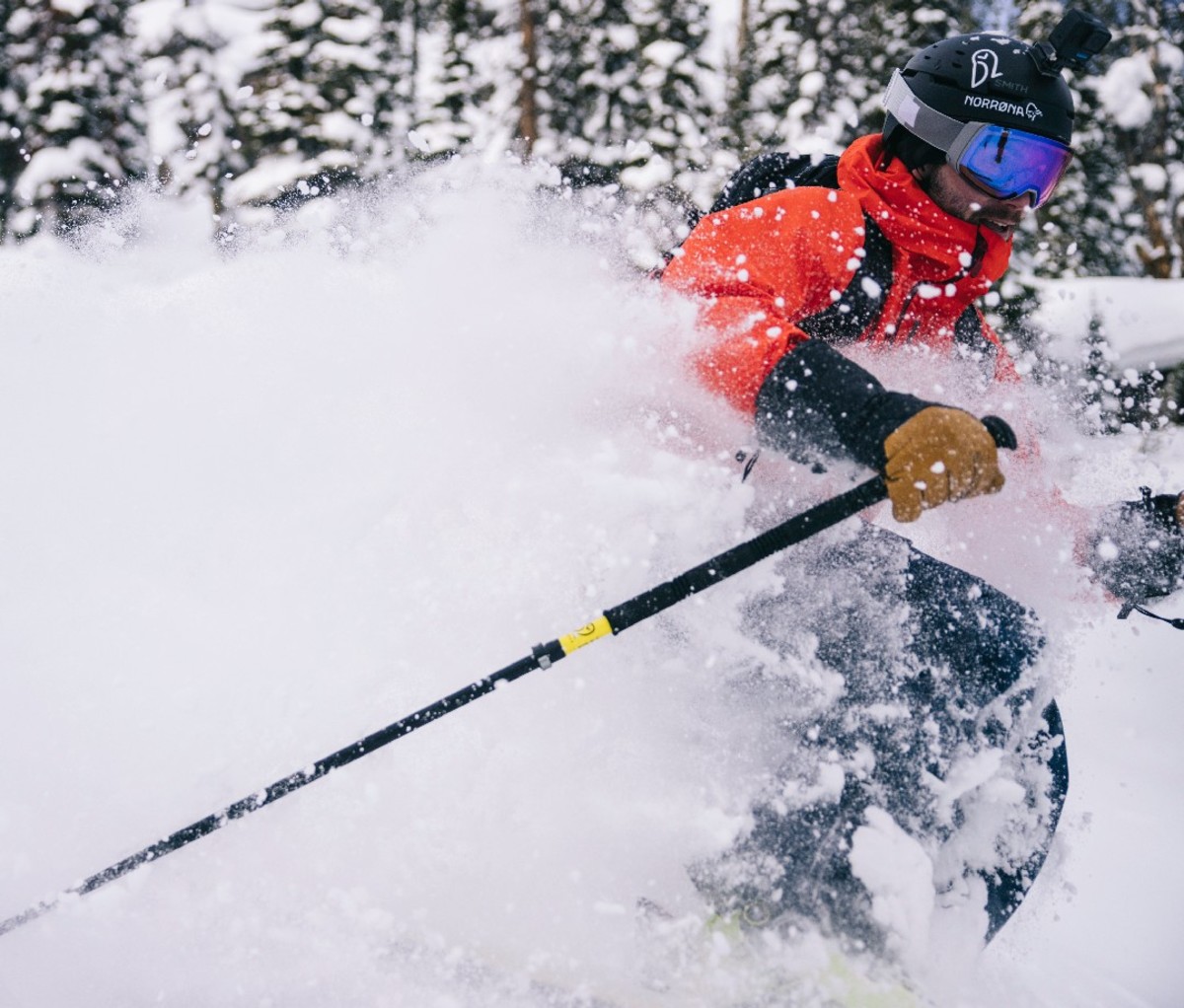
Safety-wise, it’s crucial to have both the necessary training and tools for the job. If you’re reading this, you’ve likely heard of AIRE avalanche education. It’s the U.S.-standard for snow-related safety and a self-imposed prerequisite for anyone we ski with. You’ll also want the right gear.
We love the Mammut Tour 40 Airbag Pack because it has space for extra layers, food, water, a repair kit, camera—and is comfortable to wear with everything crammed inside. The Mammut Barryvox Package—a beacon, shovel, and probe combo—is a great addition. We also highly recommend a BCA BC Link 2.0, because good communication is crucial in the backcountry.
You’re gonna want warm gloves for snowmobiling, like Hestra Army Leather Heli Ski Mitts, which we’ve used extensively for Arctic ski trips and week-long dog sled excursions. Suffice to say, they’ve saved our hands from frostbite on more than one occasion. Pair them with the Hestra Ergo Grip Active, the best all-purpose outdoor gloves around.
We’re big fans of Smith’s Nexus Helmet for the added insurance it provides your noggin and the Smith 4D Goggles, because they have a massive field of view and the lenses are easy to swap in different light conditions.
The best upgrade made to our snowmobile before the trip was a ski-specific rack from Mo-Pros, which allowed us to carry multiple sets of skis and poles, all in a burly-yet-seamless design. Last but not least, after sampling beers across the four states we tripped through, we’ve come to the unanimous decision that the best après-ski brew is Ten Barrel Pub Beer (5% ABV)—because sometimes less is more.
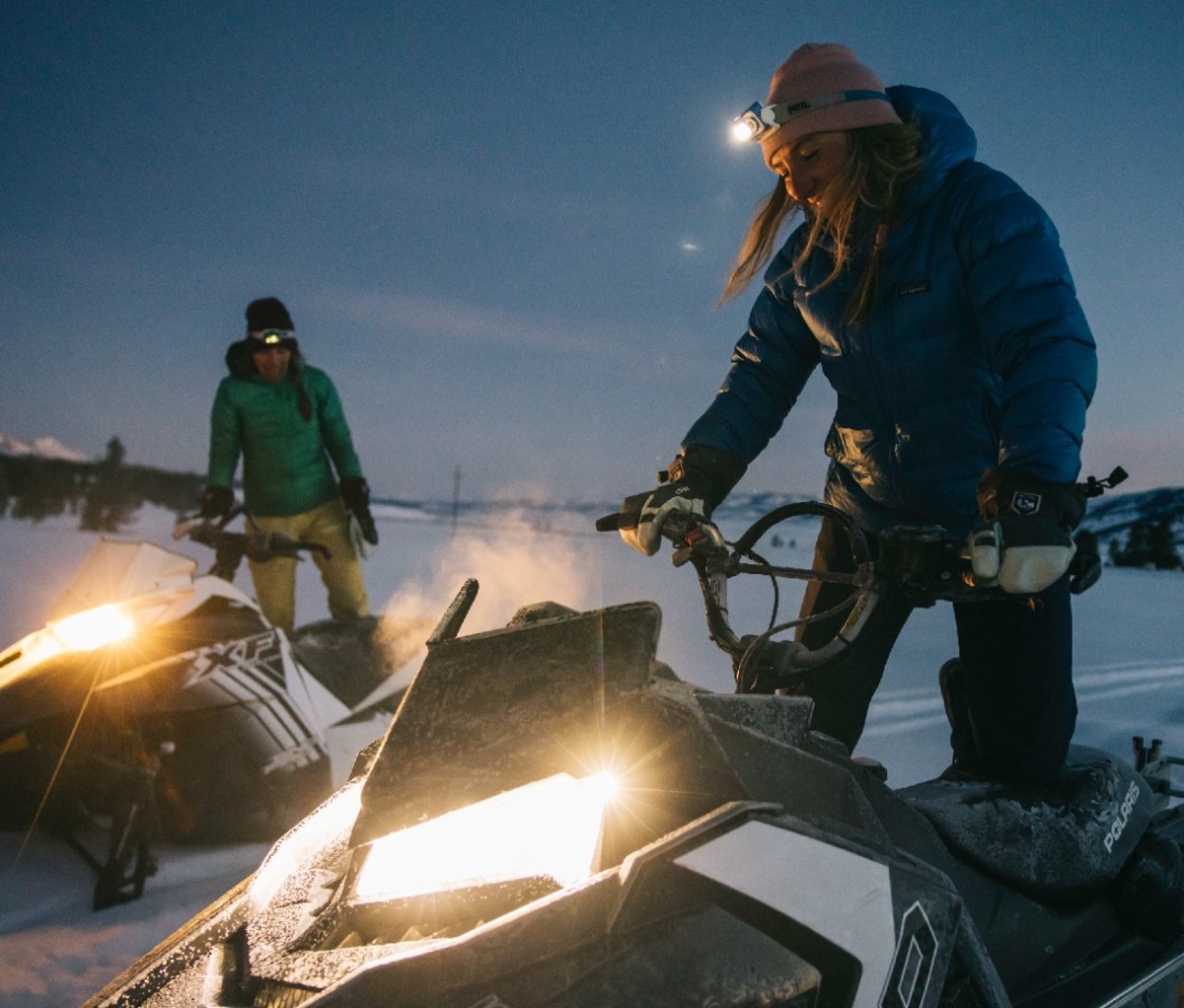
Lessons learned on a 3-week snowmobile-accessed ski tour
Some background on me: I spent five years living out of my Toyota Tacoma and learned a few things along the way. While that chapter of my life ended two-plus years ago, a lot of those lessons and principles still define my day-to-day life today. I’m still frugal. Other than big trips, I still live modestly, am meticulously organized, and don’t mind a night or two of stealth camping at a truck stop.
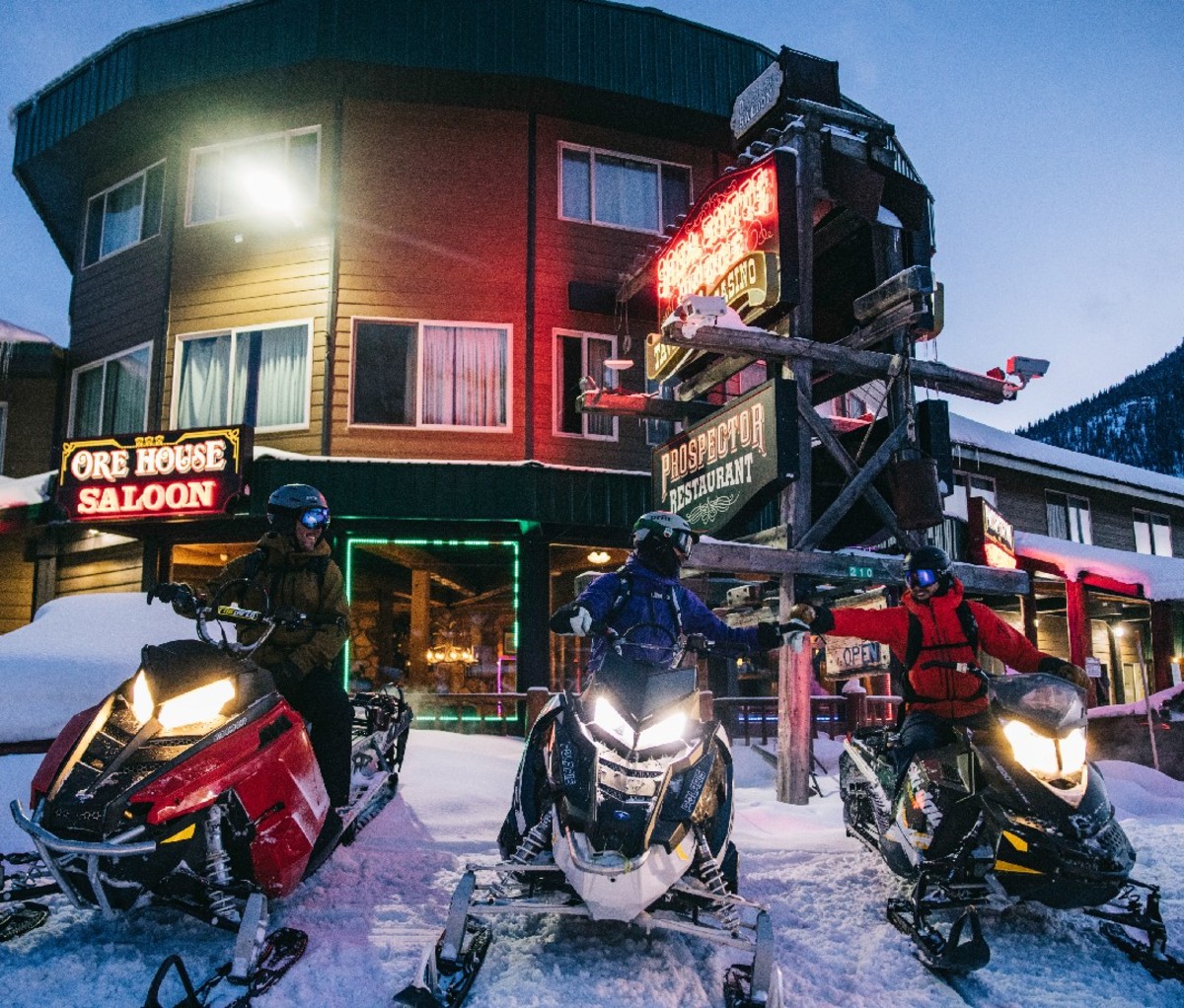
My biggest lesson on this trip was being open to trusting strangers—from avalanche forecasters who keep you safe to small-town mechanics who’ll fix a sled late at night in exchange for a six-pack to friends of friends who let you crash on their couch. When we got home, we felt like we could trust strangers, half-baked plans, best intentions, and eye twinkles—even if we didn’t know where exactly they’d lead us.
This isn’t a common feeling in our polarized world, making it even more important. Our sled-to-ski road trip gave us a chance to get out of our local bubble and meet new people on their home turf. That’s a gift we’ll never take for granted.
https://ift.tt/fVORPUk February 01, 2023 at 02:50AM Men's Journal


Comments
Post a Comment